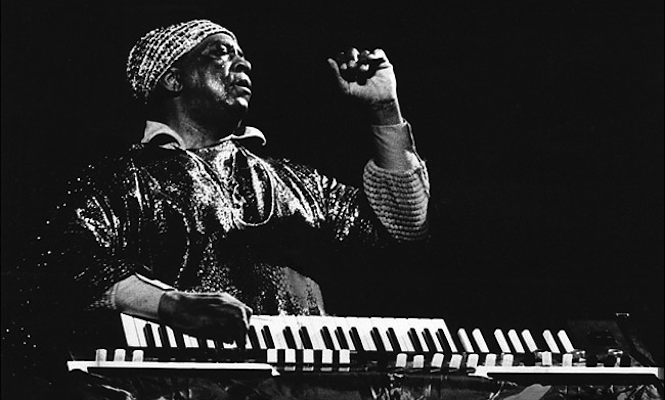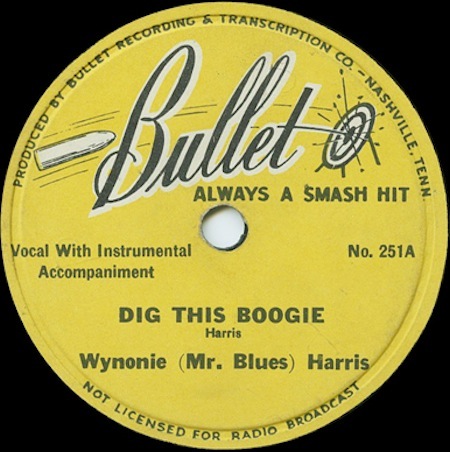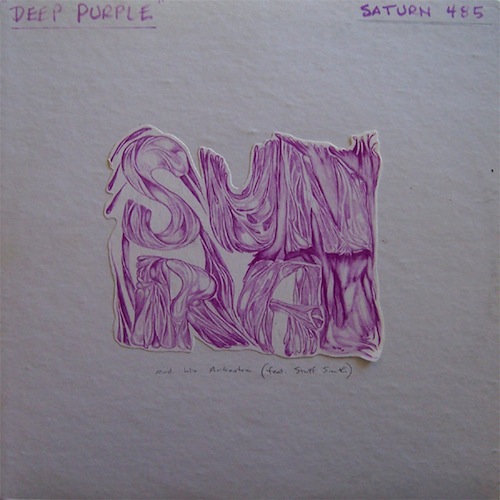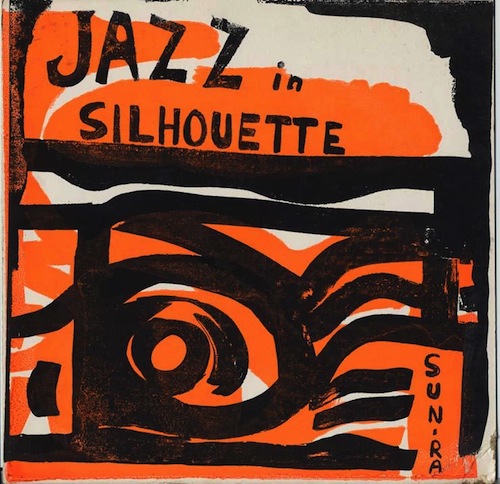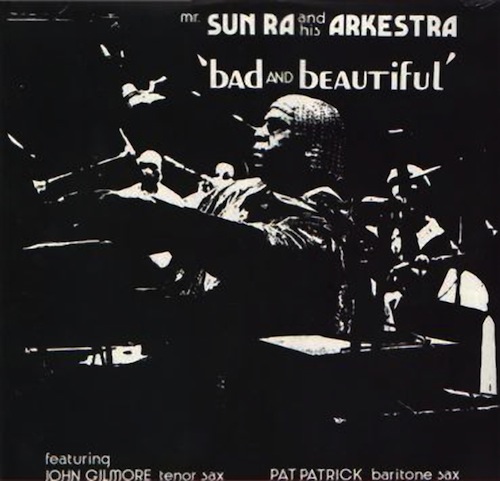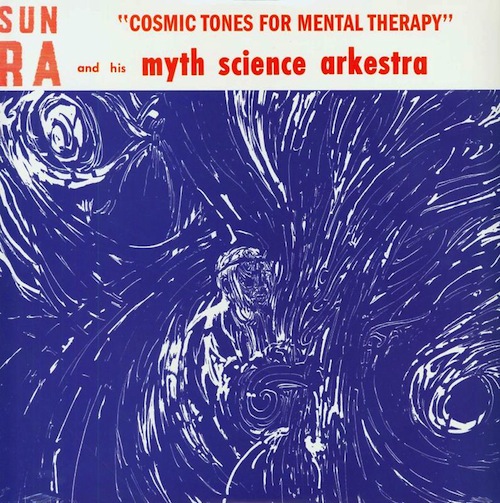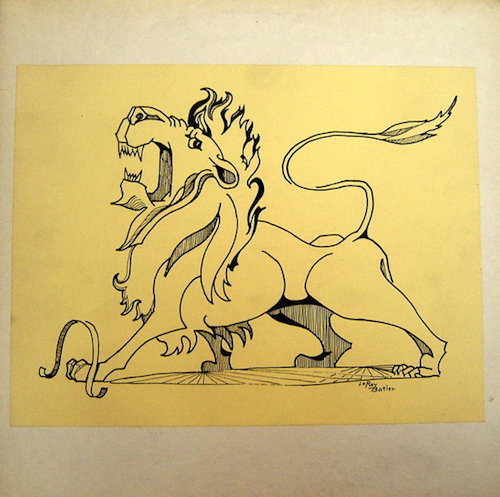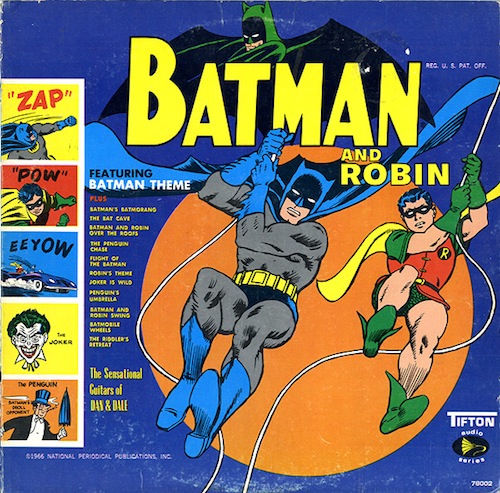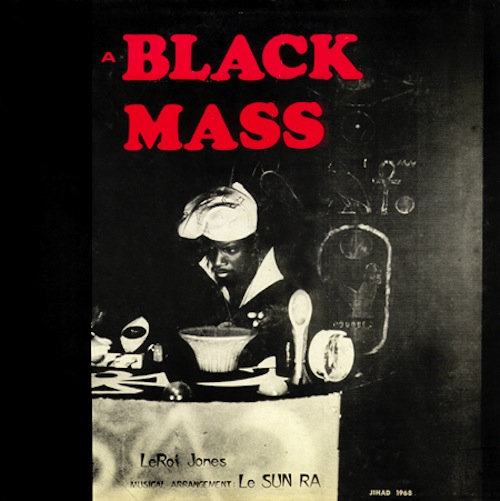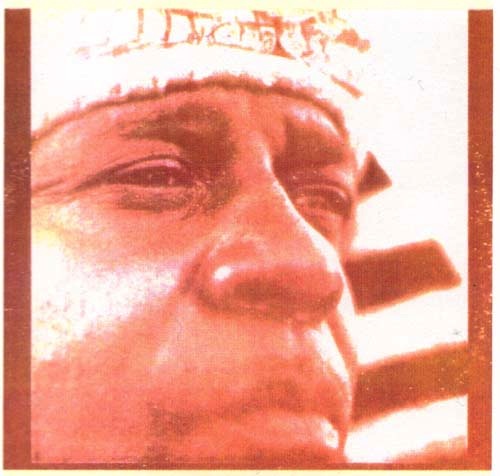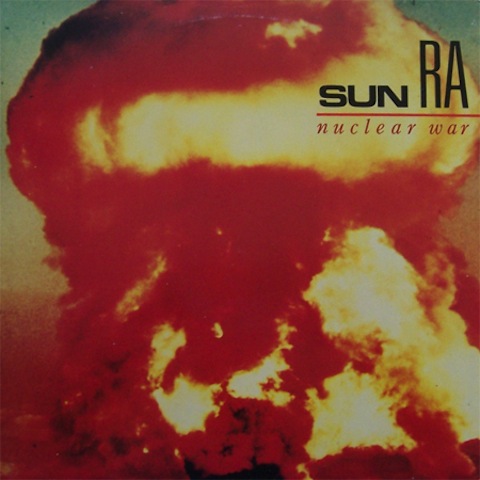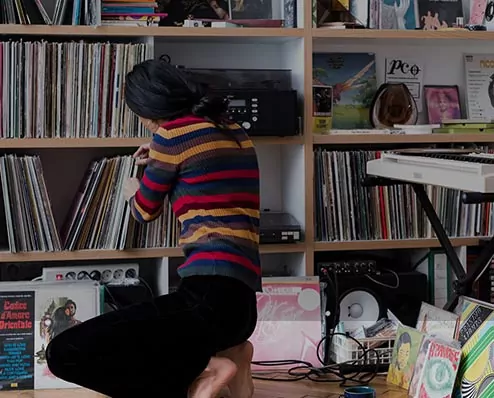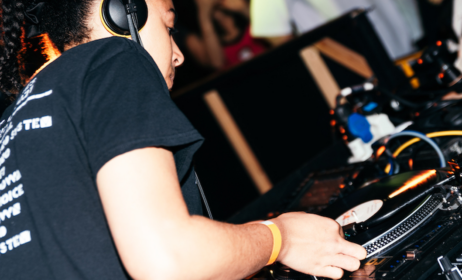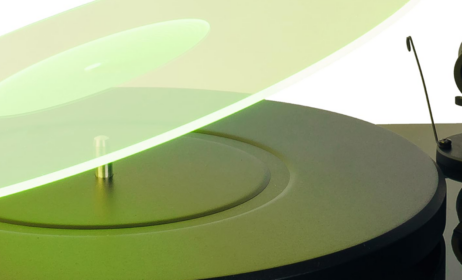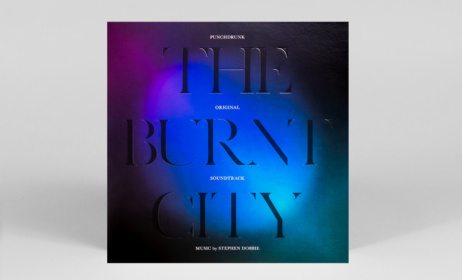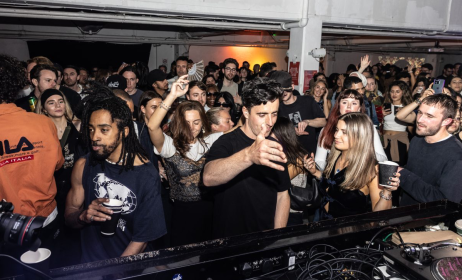Published on
May 21, 2014
Category
Features
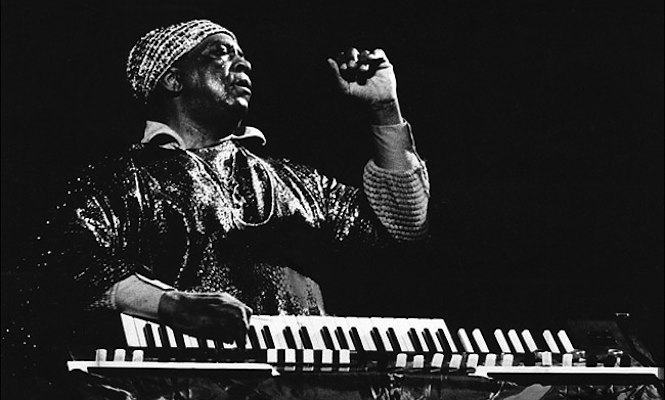
In the first of our Sun Ra features this week in celebration of the music and legacy of the great jazz pianist and universal mystic for what would have been his 100th birthday, The Vinyl Factory’s Chris May goes deep into Sun Ra’s extraordinary back catalogue of hand-painted and often privately pressed records to select 10 of the rarest around.
Words: Chris May
The father of Afrofuturism and the missing link between Duke Ellington and Public Enemy, Sun Ra was born Herman Blount in Birmingham, Alabama 100 years ago this month. Ra always disputed this, maintaining that his real name was Le Sony’r Ra and that he was from Saturn. He was here, he said, to restore the culture of the Ancient Blacks, the people of pre-Biblical Egypt, and so bring peace and harmony to Earth. As the writer Amiri Baraka put it in a 1996 eulogy: “Sun Ra spun a cosmic metaphor.”
Ra’s voluminous discography – in addition to studio recordings, he assiduously taped rehearsals and public performances – is as shrouded in myth as Ra himself. From the mid 1950s through to his death in 1993, he released records mainly on his own label, El Saturn, and sold them not through record stores but at gigs. Pressings were frequently limited to fewer than 100 copies, there was no reliable cataloguing system, sleeves were often individually hand drawn (their design and content mutating as the run progressed), and items were regularly rereleased with new titles or new sleeves or entirely different track listings. Sonic Youth co-founder Thurston Moore, a longtime Ra collector, says: “Ra was more punk than punk even pretended to be.”
With the exception of a handful of LPs released on major labels, all Ra’s vinyl is rare, and first pressings (if they can be identified as such) are extraordinarily so. Which means collecting tends to be expensive… and a lot of fun.
Here is a selection of super-rarities. All but the first and last items are LPs.
Dig this Boogie / Lightnin’ Struck the Poorhouse
(Bullet, recorded and released 1946)
This 78rpm single by blues shouter Wynonie Harris was Sun Ra’s first commercial recording. In early 1946, Ra left Alabama and migrated north to Chicago. Shortly after arriving, he was hired by Harris, who was about to leave town with his band for a three month club residency in Nashville. ‘Dig this Boogie’ / ‘Lightnin’ Struck the Poorhouse’ was recorded in Nashville in March 1946. On the A-side, Ra plays straightahead boogie piano alongside Harris’ flamboyant vocals. A second single – ‘My Baby’s Barrel House’ / ‘Drinkin’ By Myself’ – was recorded at the same session.
Deep Purple
(El Saturn, recorded 1948 – 1972, released 1973)
Back in Chicago, Ra took a succession of accompanist jobs, one with swing violinist Stuff Smith. In 1948, Ra and Smith made a home recording of the standard ‘Deep Purple’. An early adopter of electronic keyboards, Ra is heard on the Hammond Solovox as well as acoustic piano. When the recording was eventually released it was as part of the album Deep Purple, later retitled Dreams Come True. Ra plays Wurlitzer electric piano on one of the album’s 1956 tracks.
Jazz in Silhouette
(El Saturn, recorded 1958, released 1959)
Ra’s full-blown space explorations – on the bandstand rather than in rehearsal at the Arkestra’s communal home – took off in the early 1960s. As the 1950s progressed, there had been hints of the future – not least in the sleeve art for Jazz in Silhouette – but Ra’s musical aesthetic remained fundamentally swing. A minor masterpiece, the album comprises eight originals played by a ten-piece band which included deep-space Arkestra stalwarts-of-the-future, saxophonists John Gilmore, Pat Patrick and Marshall Allen (who has led the Arkestra since Ra’s death). In a Blindfold Test you would be excused for guessing the Fletcher Henderson orchestra, for which Ra had written arrangements in the late 1940s.
Bad and Beautiful
(El Saturn, recorded 1961, released 1972)
The first album Ra and the Arkestra recorded after moving from Chicago to New York in 1961. When Ra left Chicago, only five members of the Arkestra went with him: Gilmore, Patrick and Allen plus bassist Ronnie Boykins and drummer Tommy Hunter. Hunter took a job at the Choreographers’ Workshop, where the Arkestra rehearsed, and expanded in size, over the next three years. This stylistically transitional album, made at the workshop by the ex-Chicago sextet, is a mixture of originals and standards, one of which is Andre Previn’s co-written theme music for the movie The Bad and The Beautiful.
Cosmic Tones for Mental Therapy
(El Saturn, recorded 1963, released 1967)
By 1963, Ra and the Arkestra were irreversibly launched on their interstellar musical exploration. Things started getting delightfully weird. Cosmic Tones for Mental Therapy was recorded at the Choreographers’ Workshop and Brooklyn’s Tip Top Club, with the Arkestra having grown into an eleven-piece by the addition of extra horns and percussion. The Tip Top session was one of the few occasions when Ra recorded with a Hammond B3 organ (which chanced to be in the club). On ‘Thither and Yon’, the quantity of reverb and post-production anticipates the psychedelia soon to surface in California.
Featuring Pharoah Sanders and Black Harold
(El Saturn, recorded 1964, released 1976)
A live album recorded in Judson Hall, New York on New Year’s Eve 1964, as part of a series of concerts celebrating the “free” jazz then emerging in the city. The distinguished African-American critic A. B. Spellman opened his report in The Nation: “[Ra and the Arkestra] present a reviewer with a difficult problem. How to render a sympathetic appraisal…without making this group seem utterly insane?” Spellman concluded: “You had to be there”. Pharoah Sanders, on the cusp of joining John Coltrane’s band, deputises for John Gilmore, who was on leave of absence touring with drummer Art Blakey’s group. The little known flautist Harold Murray (Black Harold) plays in the vocalised-style made popular by Rahsaan Roland Kirk.
Batman and Robin
(Tifton, recorded and released 1966)
Credited to The Sensational Guitars of Dan and Dale, but actually recorded by Ra and half a dozen Arkestra members plus Al Kooper’s Blues Project, Batman and Robin was a quickie exploitation album put together by a New Jersey toy manufacturer, cashing in on the popularity of the Caped Crusader and his Boy Wonder. Track titles include ‘The Riddler’s Retreat’ and ‘The Bat Cave’, but the music has nothing to do with the Batman TV series. It is instead a series of off-the-cuff blues jams – and it cooks. Ra (on another rare excursion with the Hammond B3), Gilmore, Patrick and Allen are among the soloists. Al Kooper later denied being present, but the music says otherwise.
A Black Mass
(Jihad Productions, recorded and released 1968)
A studio recreation of the music Ra and the Arkestra improvised onstage during performances of the play A Black Mass, written by Amiri Baraka, during its opening run in 1966 (when Baraka was still known as Leroi Jones). The play was based in part on the Nation of Islam’s belief that black equals good, white equals bad, a point of view the pro-black but not anti-white Ra rejected. The spiritually-inclined Ra and historical-determinist Baraka nonetheless admired and championed each other’s work.
Nidhamu
(Thoth Intergalactic, recorded 1971, released 1972)
In 1968, Ra moved the Arkestra from New York to Philadelphia, where he lived until his death (and where the Arkestra is still based). Ra released records most prolifically during the 1970s, usually on El Saturn but sometimes on the subsidiary Thoth Intergalactic. Nidhamu was recorded in Heliopolis and Cairo during the Arkestra’s first tour of Egypt. The tour is also documented on another Thoth album, Live in Egypt Volume 1, retitled Dark Myth Equation Visitation on reissue.
Nuclear War / Sometimes I’m Happy
(Y Records, recorded 1981, released 1982)
A proto-rap 12” single released on the British post-punk label Y, both sides were later included on the album Nuclear War, released in Italy in 1984. Convinced the single could be a hit, Ra had offered it to CBS, who rejected it on the grounds that the chorus – “It’s a motherfucker / Don’t you know / If they push that button / Your ass got to go” – precluded any chance of airplay. Y was more receptive. The label was run by Dick O’Dell, who with William Orbit founded Guerilla Records in 1990. The Y single is phenomenally rare, even by Ra’s standards.

